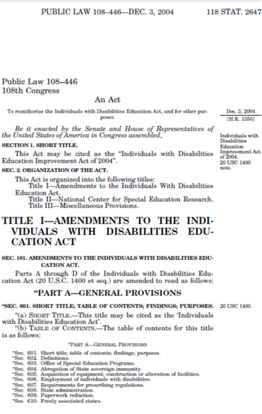|
See the latest article from CEO Samantha Pierce about building resilient students and educators published in the September issue of Family Times magazine. Transforming Tragedies: An effort to build resilience to trauma in school "Everyone experiences distressing events in their lives. You’ve probably heard about trauma, the emotional response to these events. Our emotional reactions to these events can have long term effects on the way we think, make decisions and relate to others. Developing resilience—our ability to cope with stress—makes responding to adversity easier."
2 Comments
Save the date for this fall's autism resource fair with the Syracuse City School District. Interested vendors can sign up to participate here.
Parent University Fall Conference and Autism Resource Fair Saturday, October 5, 2019 PSLA Fowler 227 Magnolia St, Syracuse, NY 13204 9:00 AM - 1:30 PM
Some days it feels like being a parent requires me to be a general education specialist, a special education expert, a psychologist, a neurologist and neuroscientist, a geneticist, an education law specialist, a diplomat, and a hunting dog all at the same time. It is exhausting. But it’s what you do. Will there be a time when I’m not going to advocate for my children and others like them? When I’m dead maybe. My kids want to go to college. That means it’s my job to make sure everyone does their job to give my children that opportunity. Sometimes that means holding my children to a higher standard than others have for them. Sometimes that means cutting them some slack. It’s a delicate balance that requires knowing the child in question and what best motivates them. Mostly it requires being present and aware of my child and their needs. It means setting in my mind that they can achieve their goals and working alongside them to make sure it happens. I fall into bed exhausted every night. My children do as well. We all work hard fighting for our futures. It is so worth the battle. While I’m doing all that I also get to do the regular parent stuff. The nurturing, the loving, the laundry, the cooking, the cleaning, the teaching of life skills and how to be a decent human being. I need a nap. Suspending a student because of behavior related to their disability is illegal. Despite this fact suspension is still the go-to response for many schools and school districts. School districts have been penalized for disproportionately suspending students with disabilities and thus violating their rights. If your school/school district is known for routinely suspending students with disabilities over behavior it is up to parents and guardians to hold them accountable for these illegal actions. If students with disabilities are routinely suspended over behavior it means that schools have failed, and failed spectacularly, at meeting their legal and moral obligations to students.
So how do we help our students experiencing behavior challenges at school? Any student with behavior challenges at school is due a Functional Behavioral Assessment (FBA). FBAs are a part of federal and state education regulations (see resource list below). The purpose of a FBA is to identify behaviors that pose a challenge to a student’s learning, identify what in the student’s learning environment precedes or triggers the behaviors, and what follows from the behaviors. FBA can also identify behaviors that help support a student in their learning environment. When we think of social isolation in the context of autism spectrum disorders as parents we often worry about the social isolation our children may experience. We are concerned about the hurt we assume they will feel as a result of it. This spring I was dismayed when one of my teenagers missed out on a school dance. I was determined that he would not miss another opportunity to socialize with his peers. After all I know how much those opportunities to socialize meant to me when I was his age.
When the next school dance rolled around I made sure to have all my ducks in a row. I started with my husband first. You know that whole united front thing that parenting and relationship experts talk about. My husband’s response was something along the lines of, “Dance? Why would anyone want to waste time on something like that?” He then proceeded to retell the story of his parents writing notes to school to get him out of having to go to school dances. Something about being against their religion or some such. So much for united front. I was having the conversation about the school dance with my son on my own. It was a very brief conversation. Your praise may be the only good thing they hear about themselves all day so make it really count. Another school year has started and my kids are all getting used to the routine of a new grade and a new set of teachers. I spent this morning meeting with every teacher of my children that I could find. My fifth grader’s teacher and I had a particularly long chat. This teacher also had my seventh grader two years ago when he went through fifth grade. We had a good chuckle about what a challenge that was for him, the teacher. My current fifth grader is one of those challenging kids that may find his way to a self contained classroom if school staff can’t find an effective way to manage his behavior at school. I’ve introduced the Nurtured Heart Approach® into our conversations about my fifth grader. We’ll see how receptive the school staff are to it. I’ve had a great deal of success with NHA® at home. But that’s not quite what this post is about. While we were chatting I mentioned the fact that my fifth grader is a great student of human behavior. This prompted my son’s teacher to go on and on about how sensitive his autistic students are to the behavior and emotions of the staff and students working with them. He seemed in awe of their abilities to do. I was pleased to hear him make this observation about his students. He described how it might take a typical student a week to figure out how to push the teacher’s buttons where one of his autistic students could figure it out after just one go. Often times people think that autistic people are not dialed in to what’s going on around them. But the truth that my son’s teacher recognizes is that autistic children and adults are often fully aware of the emotional soup that we are all drifting in. Their social challenges put them in the situation of having to be very creative in how they get their needs met. Often times what gets them the most attention is acting out.
At this point I jumped on my NHA® soapbox and pointed out that NHA® is the perfect way to short circuit the negative attention seeking. By refusing to give energy to the negative and instead giving it to the positive these sensitive students can learn how to interact in a healthy fashion with everyone in the classroom. But going back to the sensitive nature of autistic people, my son’s teacher commented that while not all of his students have been verbal they have clearly been aware of what was said to them and about them. While the main tendency is to characterize autistics by what they cannot do or by what they have difficulty doing it behooves us to remember what they can do. Sometimes we have to remind them about what they can do. The constant focus on what a person can’t do can leave anyone feeling as if they can do nothing. So if you are a person of influence in the life of someone with autism, or some other special need, take the time to see what they are good at. See what they are doing right. Then take your sweet time telling them all about how awesome they are. The sad truth is that your praise may be the only good thing they hear about themselves all day so make it really count. |
Categories
All
Archives
December 2021
|
||||||||
Photo from Hayzphotos

 RSS Feed
RSS Feed
